What is Artificial Intelligence and What is Its Impact on the Job Market?
![]()
Artificial Intelligence (#AI), as one of the most important technologies of the current century, is rapidly transforming various industries.
This technology, which provides the ability to simulate human intelligence in machines and systems, uses complex algorithms and large datasets for learning, reasoning, and decision-making.
The impact of artificial intelligence on the job market is vast, creating new opportunities while also presenting challenges.
Artificial Intelligence can automate repetitive processes and routine tasks, increase productivity, and enable the development of innovative products and services.
This will lead to the creation of new job opportunities in areas related to the development, implementation, and maintenance of AI systems.
However, these changes may lead to the replacement of some traditional jobs that rely heavily on routine and repetitive tasks.
Therefore, individuals and organizations must prepare themselves for these changes and acquire the necessary skills to work alongside artificial intelligence.
A review of the career future of artificial intelligence indicates that jobs requiring creativity, critical thinking, communication skills, and empathy are less at risk of replacement and may even be enhanced by the use of AI.
Ultimately, the adoption and integration of artificial intelligence in the job market requires careful planning, appropriate training, and attention to the ethical and social issues associated with this technology.
Does your current company website not reflect your brand’s credibility and strength as it should? Rasaweb solves this challenge for you with professional corporate website design.
✅ Increase visitor credibility and trust
✅ Attract more targeted customers
⚡ Click for a free consultation!
New Job Opportunities Arising from Artificial Intelligence Development
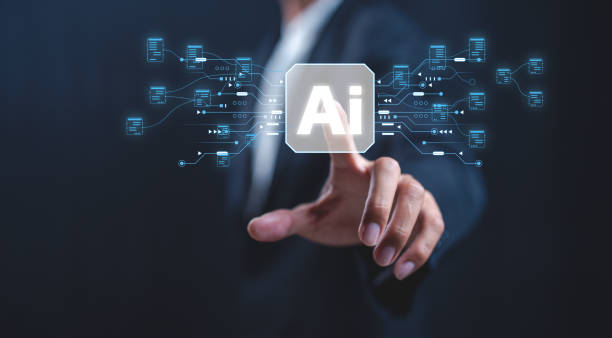
The development of #Artificial_Intelligence not only changes existing jobs but also creates new job opportunities that did not exist before.
One of the most important of these opportunities is for AI developers and machine learning specialists who are responsible for designing, implementing, and training AI models.
These individuals must have deep knowledge in mathematics, statistics, computer science, and programming.
Furthermore, with the increasing use of AI in various industries, the demand for data specialists also rises.
Data specialists are responsible for collecting and analyzing data to extract useful patterns and insights that can be used in business decisions and improving system performance.
The career future of artificial intelligence is also very bright in the field of robotics engineering.
With advancements in AI, robots are capable of performing more complex tasks and are being used in various industries, including manufacturing, services, and medicine.
This leads to an increased demand for robotics engineers who are responsible for designing, building, and maintaining robots.
Additionally, given the increasing importance of ethics and accountability in the use of AI, new job opportunities are emerging in the field of AI ethics and responsibility.
Specialists in this area are responsible for ensuring that AI systems operate fairly and without discrimination, respecting individuals’ rights and privacy.
Ultimately, the career future of artificial intelligence depends on individuals’ ability to acquire new skills and adapt to technological changes.
Essential Skills for Success in AI-Related Jobs
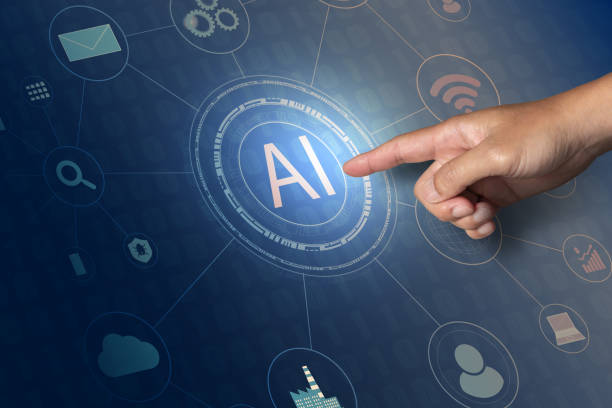
To succeed in AI-related jobs, both specialized and soft skills are essential.
Specialized skills include deep knowledge in mathematics, statistics, computer science, and programming.
Programming in various languages, especially Python, due to its extensive libraries in this field, is crucial for developing and implementing AI algorithms.
In addition to specialized skills, soft skills are also highly important.
Strong communication skills are necessary to explain complex concepts in simple and understandable language to non-specialists.
Also, the ability to work in a team and collaborate with other specialists is of high importance.
The career future of artificial intelligence demands that individuals have the ability for continuous learning and adaptation to rapid technological changes.
AI is developing rapidly, and new algorithms and tools are constantly being introduced.
Therefore, individuals must constantly be learning and updating their knowledge to remain competitive in this field.
Problem-solving and critical thinking skills are also very important for success in this area.
AI specialists must be able to identify and solve complex problems and provide innovative solutions using data and algorithms.
The career future of artificial intelligence requires individuals who, in addition to technical knowledge, also possess business acumen and the ability to understand customer needs.
| Skill | Description |
|---|---|
| Programming | Proficiency in programming languages like Python |
| Mathematics and Statistics | Deep knowledge in mathematics and statistics |
| Machine Learning | Familiarity with machine learning algorithms |
| Communication Skills | Ability to communicate effectively with others |
| Problem Solving | Ability to solve complex problems and provide innovative solutions |
Impact of Artificial Intelligence on Various Industries (with examples)
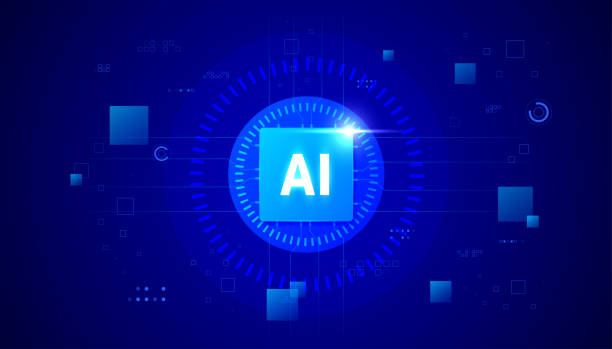
Artificial intelligence has had extensive impacts on various industries and has brought about significant transformations in them.
In the medical industry, AI is used for diagnosing diseases, developing drugs, and improving patient care.
For example, AI algorithms can analyze medical images such as MRI and CT scans and diagnose diseases with greater accuracy.
In the automotive industry, AI plays a crucial role in the development of self-driving cars.
Self-driving cars use AI algorithms to perceive their surroundings, make decisions, and control the vehicle.
In the financial industry, AI is employed for fraud detection, risk management, and providing personalized financial services.
For example, AI algorithms can identify suspicious transactions and prevent fraud.
The career future of artificial intelligence is also very important in the retail industry.
AI is used to enhance customer experience, optimize supply chains, and predict demand.
For example, AI-powered recommender systems can suggest products and services to customers that they are most likely to be interested in.
In the manufacturing industry, AI is used to automate processes, improve product quality, and reduce costs.
For example, smart robots can perform repetitive and hazardous tasks, thereby increasing productivity.
Overall, the career future of artificial intelligence in various industries is very promising, and it is expected that we will see a wider adoption of this technology in different sectors in the coming years.
Did you know that poor online store design can drive away up to 70% of your potential customers? Rasaweb transforms your sales with professional and user-friendly e-commerce website designs.
✅ Significant increase in sales and revenue
✅ Full optimization for search engines and mobile
⚡ [Get a free consultation from Rasaweb]
Challenges Ahead in the Development and Application of Artificial Intelligence
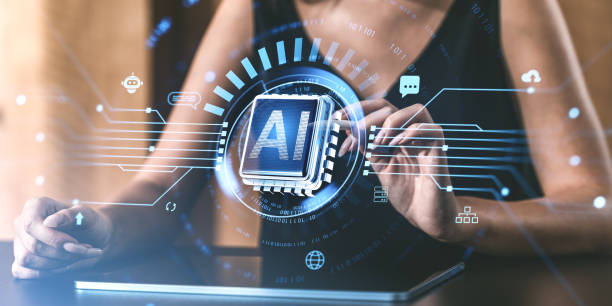
The development and application of artificial intelligence come with numerous challenges that must be addressed.
One of the most significant challenges is the scarcity of appropriate and high-quality training data.
AI algorithms require vast and diverse data to learn and improve their performance.
If training data is incomplete, inaccurate, or biased, the performance of the algorithms will also be affected.
Another challenge involves ethical and social issues related to the use of AI.
For example, AI algorithms may make decisions that are discriminatory or violate individuals’ rights.
Therefore, it must be ensured that AI systems operate fairly and without discrimination, respecting individuals’ rights and privacy.
The career future of artificial intelligence also faces challenges related to security and privacy.
AI systems may be vulnerable to cyberattacks, and their data could be stolen.
Thus, appropriate security measures must be adopted to protect AI systems and their data.
Another challenge is concerns about job displacement by AI.
With the automation of various processes by AI, some traditional jobs may disappear.
Therefore, appropriate training and support programs should be considered to help individuals acquire new skills and adapt to technological changes.
Ultimately, the career future of artificial intelligence requires collaboration between government, industry, and academia to solve these challenges and ensure the responsible and sustainable development and application of this technology.
The Role of Education in Preparing the Workforce for the Future of AI Careers
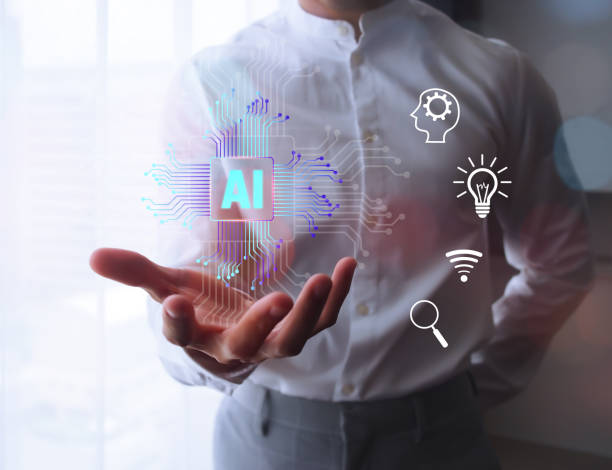
Education plays a very crucial role in preparing the workforce for the career future of artificial intelligence.
Educational systems should be designed to familiarize students with the basic concepts of artificial intelligence, machine learning, and data mining.
They should also teach them programming, mathematics, and statistics skills, which are essential for developing and applying AI systems.
Furthermore, education must also teach students soft skills such as critical thinking, problem-solving, creativity, and teamwork.
These skills are very important for success in AI-related jobs.
Educational systems should be designed to encourage students to engage in lifelong learning.
Artificial intelligence is developing rapidly, and new algorithms and tools are constantly being introduced.
Therefore, individuals must constantly be learning and updating their knowledge to remain competitive in this field.
Governments, industry, and universities should collaborate to design and implement appropriate training and internship programs to prepare the workforce for the career future of artificial intelligence.
These programs should be designed to meet the needs of various industries and help individuals acquire the necessary skills to work alongside artificial intelligence.
Ultimately, the career future of artificial intelligence depends on the ability of educational systems to prepare a skilled and specialized workforce for this field.
Strategies for Adapting to Job Market Changes Caused by Artificial Intelligence
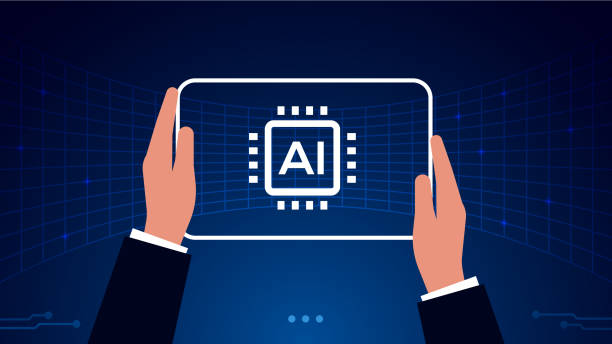
To adapt to the changes in the job market caused by artificial intelligence, individuals and organizations must adopt appropriate strategies.
Individuals must continuously upgrade their skills and learn new skills that will be required in the career future of artificial intelligence.
These skills can include programming, data analysis, machine learning, robotics, and soft skills such as critical thinking and problem-solving.
Organizations should increase investment in the training and development of their employees and provide appropriate training programs to help them acquire new skills.
Furthermore, organizations should promote a learning culture within their organization and offer their employees opportunities for learning and professional development.
Governments should adopt appropriate policies to support individuals and organizations in adapting to job market changes caused by artificial intelligence.
These policies can include providing free training, financial aid, and career counseling.
Individuals should look for new job opportunities in fields related to artificial intelligence.
These opportunities can include AI developers, data specialists, robotics engineers, and AI ethics specialists.
The career future of artificial intelligence requires individuals and organizations to actively participate in the change process and leverage the new opportunities that AI creates.
Ultimately, the career future of artificial intelligence depends on the ability of individuals and organizations to adapt to technological changes.
| Strategy | Description |
|---|---|
| Skill Enhancement | Learning new and future-needed skills |
| Investment in Training | Providing training programs for employees |
| Promoting a Learning Culture | Creating learning opportunities for employees |
| Seeking New Job Opportunities | Finding jobs related to artificial intelligence |
| Active Participation in Change Process | Leveraging opportunities created by artificial intelligence |
Case Study of Companies That Successfully Used Artificial Intelligence
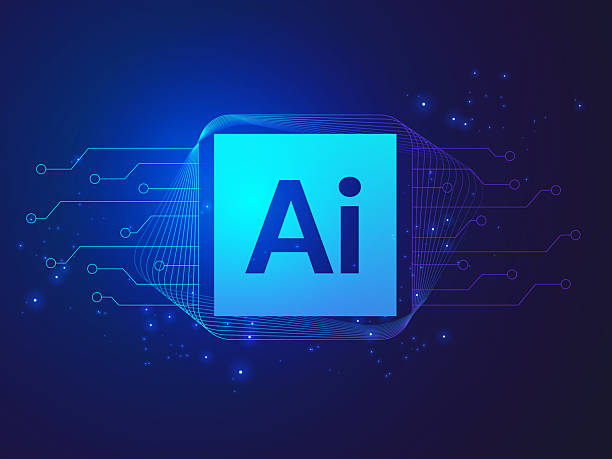
Case studies of companies that have successfully used artificial intelligence can provide valuable insights into how to leverage this technology.
For example, Netflix uses AI algorithms to recommend movies and TV shows to its users that they are most likely to enjoy.
This has led to increased customer satisfaction and higher retention rates.
Amazon uses AI to optimize its supply chain.
AI algorithms can predict demand, optimize transportation routes, and manage warehouses more efficiently.
This has resulted in reduced costs and improved delivery speed to customers.
Google uses AI in its various products and services, including search, translation, and voice assistants.
The career future of artificial intelligence is expanding in these companies and plays a significant role in improving user experience and providing innovative services.
General Electric uses AI to monitor the performance of wind turbines and predict failures.
This has led to reduced maintenance costs and increased turbine efficiency.
These case studies show that artificial intelligence can be used in various industries to solve complex problems, improve performance, and create added value.
The career future of artificial intelligence is very bright in these companies, and they are seeking to attract skilled professionals in this field.
Losing potential customers due to an unprofessional website? Rasaweb is your answer! With our specialized corporate website design services:
✅ Elevate your business’s credibility and standing
✅ Experience attracting more targeted customers
⚡ Act now for a free consultation!
Forecasting the Career Future of Artificial Intelligence in the Next 5 to 10 Years
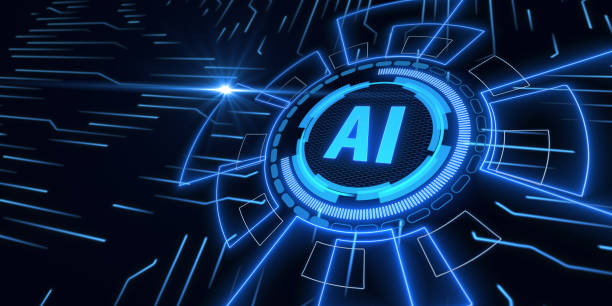
Forecasting the career future of artificial intelligence in the next 5 to 10 years requires attention to current trends and technological advancements.
It is expected that during this period, the use of artificial intelligence will significantly increase across various industries.
This will lead to the creation of new job opportunities in areas related to the development, implementation, and maintenance of AI systems.
Furthermore, it is anticipated that jobs requiring creativity, critical thinking, communication skills, and empathy will be less at risk of displacement and may even be enhanced by the use of AI.
With advancements in artificial intelligence, robots will be capable of performing more complex tasks and will be employed in various industries, including manufacturing, services, and medicine.
This will lead to an increased demand for robotics engineers.
Additionally, given the growing importance of ethics and accountability in the use of AI, new job opportunities will emerge in the fields of AI ethics and responsibility.
As the use of artificial intelligence expands, the need for data specialists will also increase.
Data specialists will be responsible for collecting and analyzing data to extract useful patterns and insights.
Overall, the career future of artificial intelligence in the next 5 to 10 years is very promising, and this technology is expected to play a significant role in the global economy.
The career future of artificial intelligence depends on individuals’ ability to acquire new skills and adapt to technological changes.
AI Learning Resources and Tools for Skill Enhancement
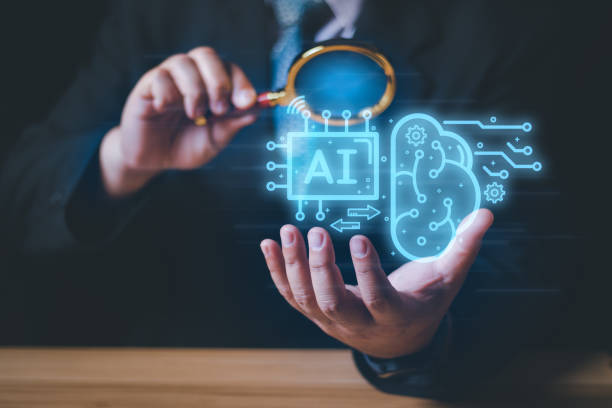
To enhance skills in the field of artificial intelligence, numerous learning resources and tools are available.
Online courses such as Coursera, edX, and Udacity offer a variety of courses in artificial intelligence, machine learning, and data mining.
These courses are typically taught by prominent university professors and industry experts and help individuals acquire the knowledge and skills necessary to work in this field.
Many books on artificial intelligence are also available that can help individuals learn the basic and advanced concepts of this technology.
Some well-known books in this field include “Deep Learning” by Ian Goodfellow, Yoshua Bengio, and Aaron Courville, and “Pattern Recognition and Machine Learning” by Christopher Bishop.
Several tools are also available for developing and implementing artificial intelligence systems.
TensorFlow and PyTorch are two popular machine learning frameworks developed by Google and Facebook.
These frameworks provide powerful tools for building and training machine learning models.
The career future of artificial intelligence requires continuous learning and the use of new tools.
Kaggle is an online platform that hosts machine learning competitions.
Participating in these competitions helps individuals improve their skills in solving real-world machine learning problems.
GitHub is an online platform that allows developers to share their code and collaborate with each other.
Using GitHub helps individuals learn from others’ experiences and participate in collaborative projects.
Overall, the career future of artificial intelligence depends on individuals’ ability to utilize available learning resources and tools and continuously enhance their skills.
Frequently Asked Questions
| Question | Answer |
|---|---|
| What impact will AI have on the future job market? | AI will automate repetitive jobs, but at the same time, it will create new and more complex jobs in areas such as the development, maintenance, and training of AI systems. |
| Which jobs are most at risk of being replaced by AI? | Jobs involving repetitive, rule-based tasks with low requirements for creativity or emotional intelligence, such as some manufacturing jobs, data entry, and simple customer service, are most at risk. |
| What skills are essential for success in the future job market with AI? | Skills such as critical thinking, complex problem-solving, creativity, emotional intelligence, data literacy, the ability to work with AI, and lifelong learning are of paramount importance. |
| Will AI cause widespread unemployment? | Some jobs will disappear, but history has shown that new technologies, instead of causing widespread unemployment, reshape the job market and create new jobs. The need for adaptability and retraining is crucial. |
| What new job opportunities will emerge with the advent of AI? | Jobs such as Machine Learning Engineer, Data Scientist, AI Ethicist, Human-AI Interaction Designer, and Digital Transformation Consultant are among the new opportunities. |
| What is the role of education in preparing for the future job market with AI? | Education should focus on developing soft skills, computational thinking, digital literacy, and the ability for continuous learning to prepare individuals for future changes. |
| How can I prepare myself for job market changes caused by AI? | You can prepare yourself by learning new skills related to AI and data, strengthening soft skills, developing critical thinking and creativity, and adopting a habit of lifelong learning. |
| Will AI ethics become an important career field? | Yes, given increasing concerns about biases, privacy, and automated decision-making in AI, the role of AI ethics specialists will become crucial for ensuring its responsible development. |
| What is the importance of human-AI collaboration in the future of work? | Human-AI collaboration, rather than competition, will shape the future of the job market. AI can be a tool to increase human productivity and focus on more complex and creative tasks. |
| Which industries will be most affected by AI? | Almost all industries will be affected, but sectors such as healthcare, finance, transportation, manufacturing, education, and customer service are pioneers in AI adoption and transformation. |
And other services of Rasaweb Advertising Agency in the field of advertising
Smart Marketing Automation: Professional optimization for increased click-through rates using attractive UI design.
Smart Advertorials: A professional solution for customer acquisition with a focus on precise audience targeting.
Smart Link Building: Professional optimization for campaign management using attractive UI design.
Smart Website Development: Transform your sales with customized user experience.
Smart UI/UX: Designed for businesses looking to increase click-through rates through SEO-driven content strategy.
And over hundreds of other services in internet advertising, advertising consultation, and organizational solutions
Internet Advertising | Advertising Strategy | Advertorials
Sources
The Career Future of Artificial Intelligence in Iran Opportunities and Challenges of Artificial Intelligence Future Jobs with Artificial Intelligence Review of the Artificial Intelligence Job Market
? For your business’s growth and prominence in the online space, Rasaweb Afarin Digital Marketing Agency is by your side, offering the best services. To enhance your digital presence and learn more about our solutions, including our professional services in Personal Website Design, please visit.
📍 Tehran, Mirdamad Street, next to Central Bank, Kazeroon Jonubi Alley, Ramin Alley, No. 6


